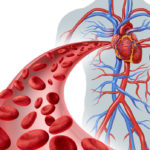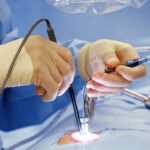To plan the best treatment, your surgeon needs to know your medical history. Fully disclose health problems you have had. Some may interfere with surgery, anaesthesia or aftercare. Tell your surgeon and the nurse (on admission to hospital) if you have had:
- an allergy or bad reaction to antibiotics, anaesthetics, or other medicines
- allergy to surgical tapes or dressings
- prolonged bleeding or excessive bruising when injured
- problems with blood clots in the legs or lungs
- recent or long-term illness
- any problems with your teeth, such as tooth abscess
- psychological or psychiatric illness
- poor healing or bad scar formation after surgery
- a stomach or duodenal ulcer.
Medicines: Give the surgeon a list of ALL medicines you are taking or have recently taken, including medicines prescribed by your family doctor and those bought without prescription, including vitamins and herbal therapies. Include medicines taken for long-term treatments, such as insulin, warfarin or contraceptive pills.
In particular, tell your surgeon if you are taking medicines that increase the risk of bleeding, such as:
- aspirin and medicines containing aspirin (such as some cough syrups)
- blood thinning injection (such as Clexane and Fragmin)
- anti-inflammatory medicines (often used to treat arthritis)
- antiplatelet drugs other than aspirin (such as Plavix, Persantin and Ticlid)
- large doses of vitamin E.
These are often withheld before surgery, but they may be a part of your management, so cessation of some of them may not be advisable. Your surgeon will advise you of their use prior to your operation. Feel free to ask your surgeon any questions about medications.
Smoking: Smoking damages the lungs and reduces lung function. Smoking increases surgical and anaesthetic risk and should be stopped for as long as possible before surgery. Smokers who do not quit should not expect to have good long-term results from heart valve surgery.
Sources of infection: Abnormal or diseased heart valves and artificial valves are prone to infection. Therefore, it is very important that potential sources of infection (such as dental infection and skin ulcers) are properly treated and healed before valve surgery is performed. Have a dental check-up before surgery. To protect your valve, you must have antibiotic cover, which can be prescribed by your cardiologist, surgeon or local doctor.
The breastbone (sterum) is, cut, and the chest is opened. Soft tissues in front of the heart are parted, and the membrane surrounding the heart (pericardium) is opened. The heart is stopped, and a heart-lung machine takes over the pumping of blood to the brain and other organs; this is called cardiopulmonary bypass. The diseased valve is exposed through an incision in the heart or aorta. It is then partly or completely removed and the artificial valve is sewn into its place. The incision in the heart or aorta is closed.
The surgeon then restarts the heart so it resumes its normal rhythm. All air is removed from the heart, and then heart-lung machine support is withdrawn. The surgeon checks that the valve is functioning correctly and that the output of blood by the heart is normal. Any bleeding is stopped. Tubes are placed within the chest to drain the blood and fluid that collect after surgery. Pacing wires are placed on the heart, and the ends are brought through the skin. They are needed in case the rhythm needs to be corrected, or the rate needs to be controlled; in several days, they will be gently removed.
The breastbone is closed, typically with stainless steel wire that is left in place, and the skin is closed with hidden sutures. Heart valve surgery usually takes from three to six hours.




